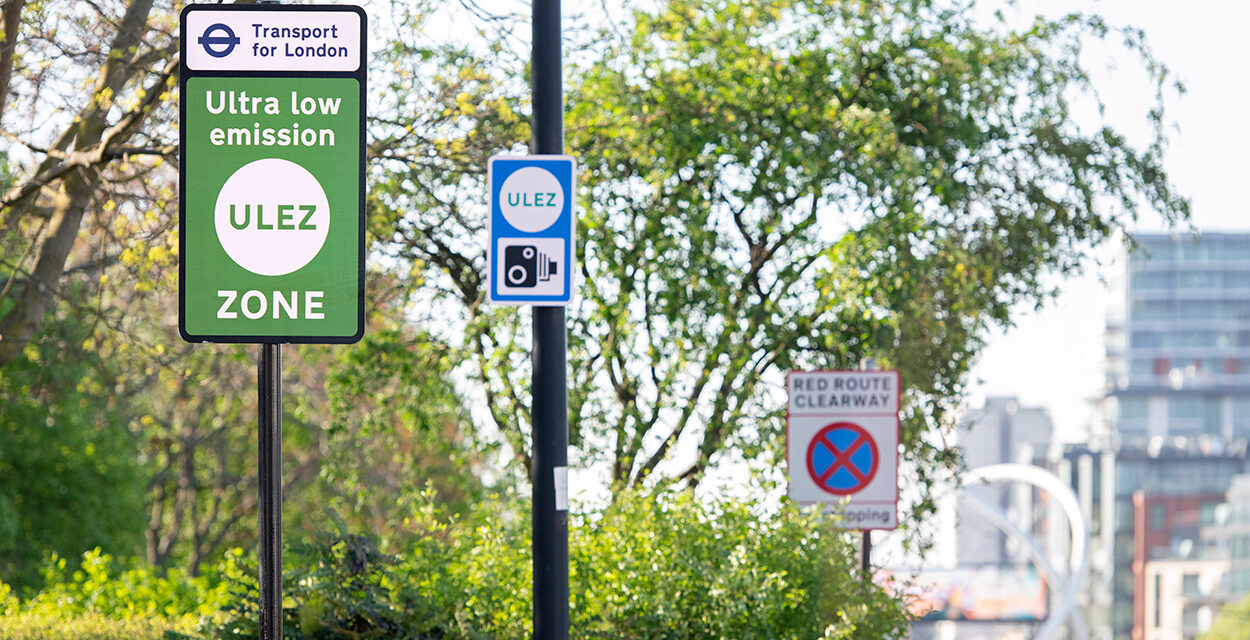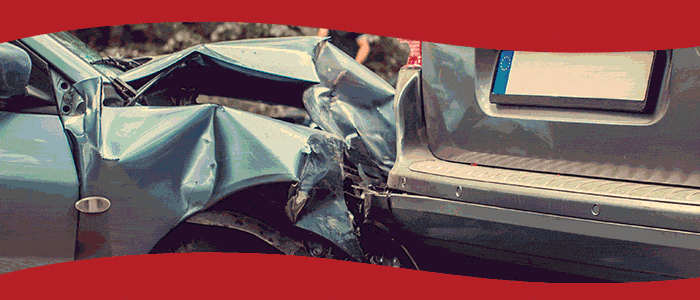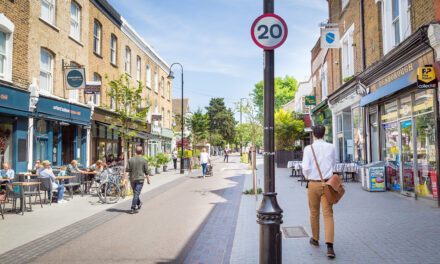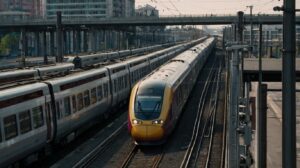Transport for London (TfL) is cracking down on drivers who persistently evade penalty charge notices (PCNs) issued for Ultra Low Emission Zone (ULEZ) contraventions.
A cohort of people who refuse to pay multiple PCNs means that a significant amount of debt remains outstanding, which could be reinvested into improving the transport network for the benefit of all Londoners.
TfL is tripling the number of people in its investigations team to boost the work with enforcement agents to target those in polluting vehicles that refuse to pay the daily charges. Boosting its intelligence-led approach will be used in tandem with other enforcement action including the ability of bailiffs to visit an evader’s address, clamp a vehicle, remove a vehicle and sell it at auction. This is in addition to the further fees that evaders accrue when they do not to pay the fine within the statutory time limit.
On 29 August 2023, the Ultra Low Emission Zone expanded London-wide to help tackle the triple challenges of air pollution, the climate emergency and traffic congestion. In London, around 4,000 premature deaths are attributed to toxic air each year, as well as increased risks of asthma, cancer and dementia. Air pollution also disproportionately affects poorer Londoners, and those from Black, Asian and minority ethnic communities. Any income generated from the scheme is being reinvested back into public transport, including improving bus routes in outer London. The scheme is not designed to generate revenue, as TfL wants all cars to be compliant.
The latest data shows that over 96 per cent of vehicles seen driving in the zone comply with the emissions standards, meaning the vast majority of drivers do not need to pay the daily charge. TfL’s cameras check the number plates of vehicles driving in the zone, and if no charge is paid for a non-compliant vehicle within three days of the journey taking place, and no Auto Pay arrangement is in place, a penalty charge notice (PCN) is sent to the registered keeper. If a vehicle’s registered keeper does not pay the penalty, it is registered as an unpaid debt and an order made for its recovery. If still not paid this leads to a Court-issued warrant, and enforcement action to recover the outstanding debt.
If a registered keeper ignores a warrant, bailiffs visit their address to recover money owed. In July, a driver with 45 warrants against them was traced by TfL agents to a new address. They claimed that they no longer owned the vehicle, but TfL’s investigations team established that the PCNs were received before the vehicle was sold. The driver settled their balance of almost £16,000. Another repeat offender with 21 warrants against their vehicle was visited multiple times by TfL enforcement agents and made a series of payments to settle their outstanding debt of over £7,800.
Enforcement agents also have the power to seize particular belongings of the debtor, and use the proceeds to satisfy any outstanding debt. In August, a car was located, seized and removed after ignoring ten warrants. The driver in question had been issued with a total of 43 letters and been visited by bailiffs five times previously. Between August 2023 and July 2024, 1,429 cars were seized and removed by bailiffs. Between August 2023 and July 2024, 761 seized cars were auctioned, recovering £710,147 of debts accrued by the minority who refuse to pay the ULEZ charge.
TfL encourages anyone who has received a ULEZ penalty charge to engage with the notice. Staff work proactively with the registered keeper to reach a solution, including setting up payment plans where appropriate, to make fines owed more manageable, and signposting to charities and resources so that they can directly seek any assistance they need.
Alex Williams, TfL’s Chief Customer and Strategy Officer, said: “The most recent data shows that on average, over 96 per cent of vehicles seen driving in the ULEZ are compliant.
“We want to send a clear message to vehicle owners that if you receive a penalty charge for driving in the zone, you should not ignore it. Your penalty will progress to enforcement agents to recover the fines that you owe, and there is a risk that your vehicle and other items of property will be removed.
“The aim of the ULEZ is to clean up London’s air and remove old polluting cars from the road so no drivers need to pay and no fines occur. There is only a small minority of drivers who are eligible for the charge, and even fewer who are refusing to pay – but we encourage anyone experiencing financial difficulties not to ignore PCNs, and to engage with our staff, who will work with you towards a resolution, including setting up debt payment plans.”
TfL encourages drivers to sign up to its Auto Pay system, which enables customers to be billed automatically when their vehicle enters the ULEZ and therefore avoids a fine. Customers registered with Auto Pay are debited on a monthly basis for daily charges and receive a monthly statement of the charges. Those registered with Auto Pay holders have 90 days to dispute any charges debited.
All penalty charge notices – a statutory notice – are sent with a guidance leaflet written in clear, uncomplicated language, offering advice on what the PCN means, how to challenge one and how to avoid receiving one in future. TfL’s website also provides further detail on how to make a representation, how to appeal the outcome of a representation, and a document outlining the rights of the recipient in relation to enforcement agents.
A pilot scheme to offer increased support to vulnerable recipients of penalty charges is set to be introduced in the coming months. The scheme will include new guidance for TfL staff to assist those experiencing hardship, such as referring to a partner organisation which provides financial guidance.
The introduction of the London-wide ULEZ in August 2023 was supported by a £210million scrappage scheme, open to all Londoners, small businesses, and charities with non-compliant vehicles. The scheme has seen funding committed to around 54,700 applicants to help them transition to cleaner, greener modes of transport and avoid paying the daily charge.















